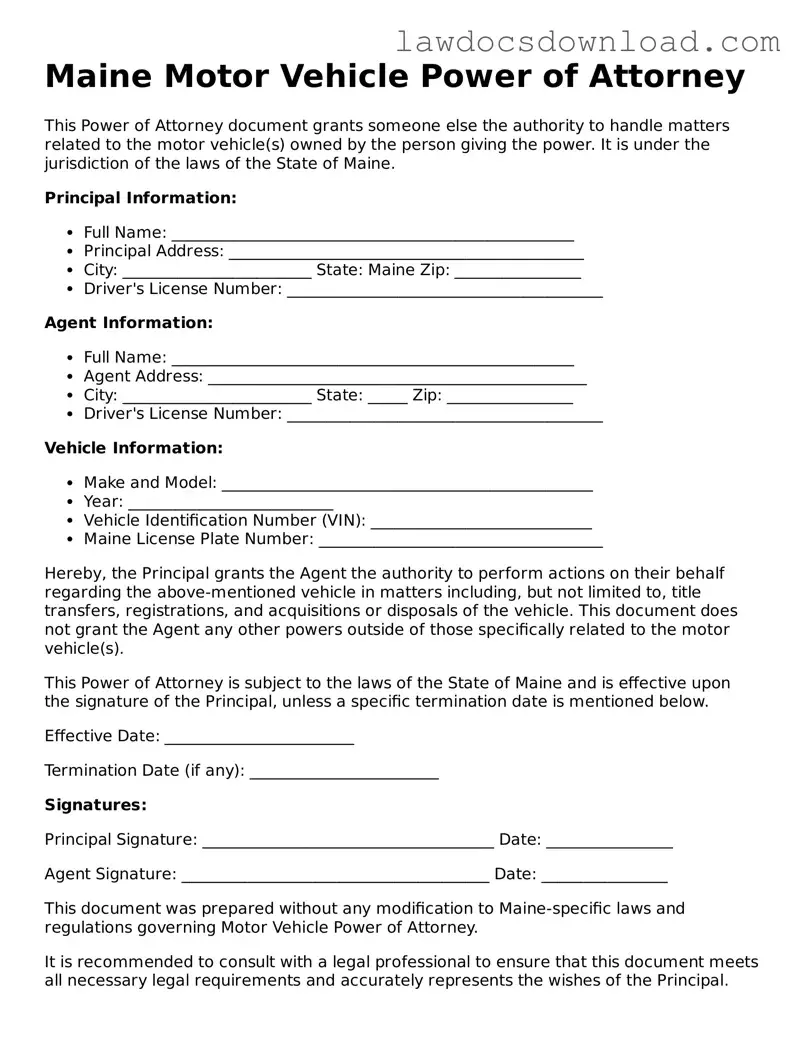Legal Maine Motor Vehicle Power of Attorney Form
The Maine Motor Vehicle Power of Attorney form is a legal document that allows individuals to grant another person the authority to handle matters related to their vehicle on their behalf. This includes tasks such as registering the vehicle, obtaining a title, and other related activities. It's a crucial tool for anyone unable to manage these affairs personally due to various reasons.
Launch Motor Vehicle Power of Attorney Editor Here

Legal Maine Motor Vehicle Power of Attorney Form
Launch Motor Vehicle Power of Attorney Editor Here

Launch Motor Vehicle Power of Attorney Editor Here
or
Free Motor Vehicle Power of Attorney
Get this form done in minutes
Complete your Motor Vehicle Power of Attorney online and download the final PDF.